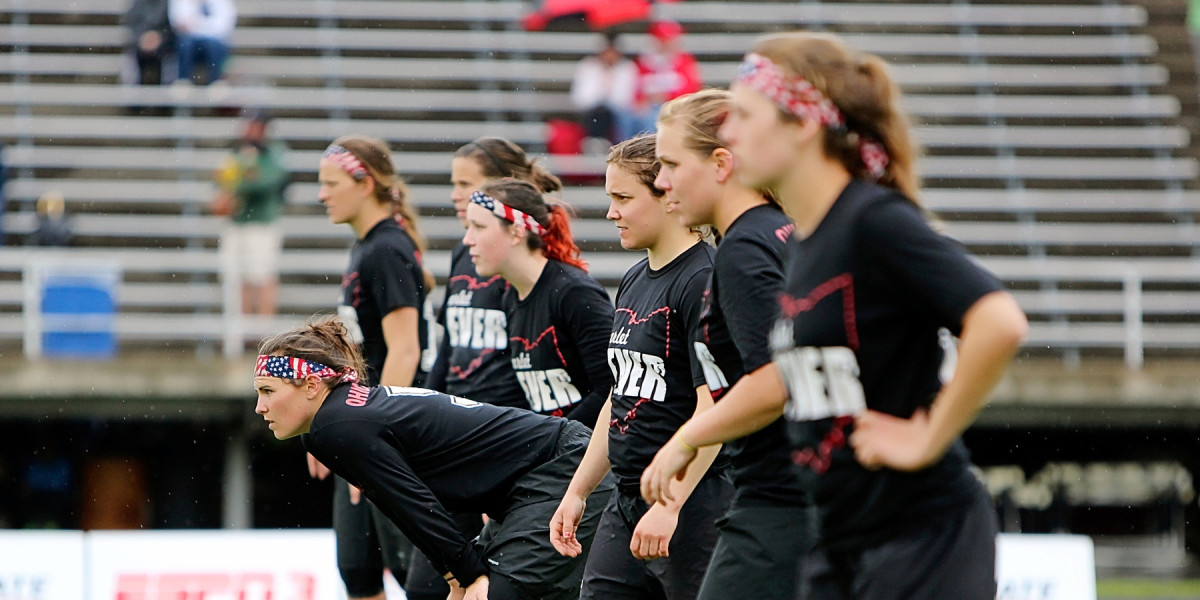 Alex Fraser - UltiPhotos.com
Alex Fraser - UltiPhotos.com
On the drive home from coaching Fever at Queen City Tune Up, I repeated the internal conversation that I’ve had a thousand times before as a player, and now as a coach. It applies to me as much as it applies to any individual on the team.
The issue? Staying motivated over the course of a tournament.
Waning motivation can be caused be many things: the level of the tournament (fall tournament vs. in-season tournament vs. Series tournament), the time of day at a (1-3pm has always been tough for me), a particular game of a tournament (a blowout game in either direction, or consolation rounds). Most tournament schedules allow a team to play up to seven or eight games; unless the tournament is a qualifying tournament to get to Nationals, or is Nationals itself, keeping a group of players engaged and on the same page the entire time is a nearly impossible feat.
Consider these scenarios: Round 5, game four on Saturday afternoon following a bye. Your team was told to be at the field, cleated and ready to go at 2:30pm. At 2:35, the team is there, but players are still tying their laces, they’re still taking their jackets off, and they’re still eating. Someone (the coach) has to tell them to get up and start moving. I’m not asking for the Saturday morning warm up routine, I just want movement.
Now fast forward to Sunday afternoon, after your team has lost in the quarters and needs to head into the 5th place bracket (typically a consolation round, unless you’re in the Northwest college women’s region and playing at Regionals in 2014), you are out of contention, on day two, with tired legs. The idea of heading to Chipotle before your eight hour drive home is a lot more enticing than playing. No one says it, but you can see it on their faces.
Motivation is really elusive. Whether it wanes because of the timing of the game, the importance of the game, the score of the game, or the value of the tournament, it’s hard to generate motivation artificially.
A player has to want to play. And a player really has to dig deep in the tough moments to figure out why they are there, at a tournament with their team. I think in part what needs to be evaluated by any individual player is this: are you there to play ultimate or are you there to be a part of your ultimate team?
As a coach, I have tried many things. We talk about the things we need to practice and how the game in front of us is a great opportunity to evaluate that new zone defense. We set goals, focusing on mini games to three. We talk about working on specific skills.
And sometimes, despite trying to create reasons for focus, the motivation continues to wane. The sideline help has resorted to pretending to tweet when really they are checking email and submitting homework. Sure, there are the players that are running their guts out, skying for the disc, throwing fakes that have even the Observers yelling “UP!,” and there are sideline players still hurdling bags to help the defense. But it’s not everyone. I’ve seen games start to ebb toward a no defense NBA all-star game, and there is a critical point at which it’s almost impossible to pull it back to competitive.
If you are there to be a part of your ultimate team, then be there for your team. While it’s hard (sometimes impossible!) to generate motivation artificially, when someone gets it started, it can be like a wildfire. It can start like the roar of a newly lit match, but a lot of times it starts as a burning ember. Blow some oxygen on that ember and give it more kindling. Whether you are a coach, a captain, or a teammate, find a reason for the team to finish lacing up those cleats and start the dynamic plyos. And then find a way to help stoke the fire at each step. Turn on the music. Dance a little. When the game starts, run down on the pull of the first point like your pants are on fire. From the sideline, challenge yourself by focusing on a single teammate on the field.
Start the motivation wildfire and stoke it by reminding the team why you are all there – for the love of this sport and because you’re part of a team. Dig deep.










Comments Policy: At Skyd, we value all legitimate contributions to the discussion of ultimate. However, please ensure your input is respectful. Hateful, slanderous, or disrespectful comments will be deleted. For grammatical, factual, and typographic errors, instead of leaving a comment, please e-mail our editors directly at editors [at] skydmagazine.com.